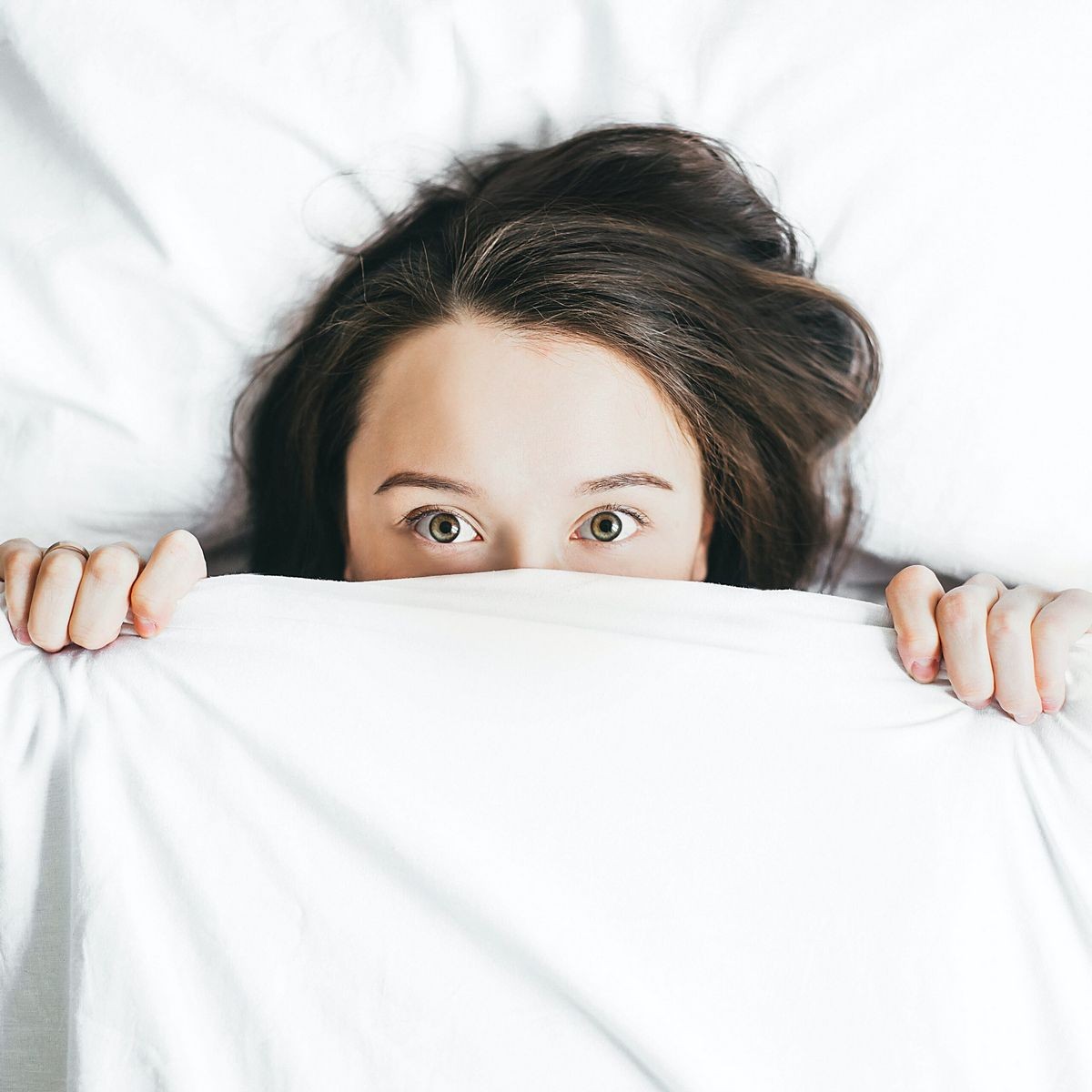
Contents
- 1 daridorexant
- 1.0.1 Warnings
- 1.0.2 Side effects of daridorexant
- 1.0.3 Dosages of daridorexant
- 1.0.4 Drug interactions with daridorexant
- 1.0.5 Pregnancy and breastfeeding
- 1.0.6 Other information about daridorexant
- 1.0.7 Subscribe to MedicineNet’s Depression Newsletter
- 1.0.8 Report Problems to the Food and Drug Administration
daridorexant
Daridorexant is a sedative/hypnotic medication used to treat adults with insomnia, a sleep disorder characterized by difficulty in falling and/or staying asleep at night. Daridorexant induces sleep by reducing arousal and wakefulness. Daridorexant belongs to a class of medications known as orexin antagonists that work by blocking the activity of orexins, also known as hypocretins, chemical messengers (neurotransmitters) that regulate arousal, wakefulness, and appetite.
Orexin A and B are neuropeptides produced by specialized neurons in the hypothalamus region of the brain. These neurons are active when a person is awake and stop signaling during sleep. Orexin A and B activate arousal and wakefulness by binding to orexin 1 and 2 receptors, protein molecules on neuronal membranes. Daridorexant binds to orexin 1 and 2 receptors and prevents their interaction with orexin A and B and the consequent activation of the wake drive.
Warnings
- Do not use daridorexant to treat patients with narcolepsy, a chronic sleep disorder that causes extreme drowsiness during daytime.
- Daridorexant depresses the central nervous system (CNS) and can cause daytime drowsiness, even when used in prescribed doses. CNS depressant effects may persist in some patients for several days after discontinuing the medication.
- Monitor patients and decrease dose or discontinue daridorexant in patients who experience daytime somnolence.
- Caution patients to avoid activities requiring mental alertness the next day after taking the medication at night.
- Patients receiving daridorexant, particularly the elderly, are at an increased risk for falling.
- Concurrent use of daridorexant with other CNS depressants such as benzodiazepines, opioids, and tricyclic antidepressants may require dosage adjustment of the drugs as it can increase the risk for CNS depression. Advise patients to avoid alcohol consumption while on daridorexant therapy.
Side effects of daridorexant
Common side effects of daridorexant include:
- Headache
- Tension headache
- Migraine, with or without aura
- Head discomfort
- Drowsiness (somnolence)
- Daytime sedation
- Fatigue
- Lethargy
- Dizziness
- Vertigo
- Inflammation of the labyrinth in the inner ear (labyrinthitis)
- Nausea
- Vomiting
- Central nervous system (CNS) depression
- Worsening of depression
- Suicidal ideation
- Sleep paralysis
- Hallucinations
- Lower extremity weakness (cataplexy-like symptoms)
- Complex sleep behaviors
Call your doctor immediately if you experience any of the following symptoms or serious side effects while using this drug:
- Serious heart symptoms include fast or pounding heartbeats, fluttering in your chest, shortness of breath, and sudden dizziness;
- Severe headache, confusion, slurred speech, severe weakness, vomiting, loss of coordination, feeling unsteady;
- Severe nervous system reaction with very stiff muscles, high fever, sweating, confusion, fast or uneven heartbeats, tremors, and feeling like you might pass out; or
- Serious eye symptoms include blurred vision, tunnel vision, eye pain or swelling, or seeing halos around lights.
This is not a complete list of all side effects or adverse reactions that may occur from the use of this drug. Call your doctor for medical advice about serious side effects or adverse reactions. You may also report side effects or health problems to the FDA at 1-800-FDA-1088.
QUESTION
Dosages of daridorexant
Tablet: Schedule IV
Adult:
Insomnia
- Indicated for insomnia characterized by difficulties with sleep onset and/or sleep maintenance
- 25-50 mg orally once per night
Dosage Modifications
- Strong CYP3A4 inhibitors: Avoid concomitant use
- Moderate CYP3A4 inhibitors: Not to exceed 25 mg per night
- Moderate or strong CYP3A4 inducers: Avoid concomitant use
- All severities: No dosage adjustment necessary
- Moderate (Child-Pugh score 7-9): Not to exceed 25 mg per night
- Severe (Child-Pugh score 10 and above): Not recommended
Pediatric:
- Safety and efficacy not established
Addiction/Overdose
- Although there were no reports indicative of abuse liability in clinical trials with daridorexant to treat insomnia, individuals with a history of addiction to alcohol or other drugs may be at an increased risk for abuse of and addiction to daridorexant.
- In animal studies and clinical trials of daridorexant, discontinuation of the drug after chronic use did not produce withdrawal symptoms, which indicates daridorexant use may not cause dependency.
- Daridorexant overdose can cause drowsiness, muscle weakness, sleep paralysis, cataplexy-like symptoms, fatigue, disturbance in attention, headache, and constipation.
- There is no specific antidote for daridorexant. Overdose may be treated with symptomatic and supportive care, including gastric lavage to eliminate undigested drug and monitoring of the patient.
Drug interactions with daridorexant
Inform your doctor of all medications you are currently taking, who can advise you on any possible drug interactions. Never begin taking, suddenly discontinue, or change the dosage of any medication without your doctor’s recommendation.
- Daridorexant has no listed severe interactions with other drugs.
- Daridorexant has serious interactions with at least 60 different drugs.
- Daridorexant has moderate interactions with at least 271 different drugs.
- Daridorexant has no listed mild interactions with other drugs.
The drug interactions listed above are not all of the possible interactions or adverse effects. For more information on drug interactions, visit the RxList Drug Interaction Checker.
It is important to always tell your doctor, pharmacist, or health care provider of all prescription and over-the-counter medications you use, as well as the dosage for each, and keep a list of the information. Check with your doctor or health care provider if you have any questions about the medication.
Pregnancy and breastfeeding
- Animal reproductive studies with daridorexant did not show evidence of fetal harm. There are no data available on the use of daridorexant use in pregnant women to determine drug-resistant risks of major birth defects, miscarriage, or other maternal or fetal adverse outcomes.
- There is no information on the presence of daridorexant in breastmilk or its effects on milk production or the breastfed infant. Daridorexant and its metabolites were present in animal milk and are likely present in breastmilk as well.
- Decision to breastfeed should be based on the nursing mother’s clinical need for daridorexant, health and developmental benefits of breastfeeding, and the risks to the breastfed infant from exposure to the drug or the mother’s underlying condition.
- Infants exposed to daridorexant through breastmilk should be monitored for excessive sedation.
- There is a pregnancy exposure registry that monitors pregnancy outcomes in women exposed to daridorexant (Quviviq) during pregnancy. Pregnant women exposed to daridorexant and healthcare providers are encouraged to call Idorsia Pharmaceuticals Ltd at 1-833-400-9611.
Other information about daridorexant
- Take daridorexant exactly as prescribed. Do not increase drug dosage unless instructed by your physician.
- Taking the drug immediately after a meal can delay the onset of its effects.
- Exercise caution, daridorexant has a potential for abuse, addiction, and overdose.
- Take daridorexant only if you can spend the entire night in bed before getting active again.
- Daridorexant can cause daytime drowsiness. Do not drive or engage in other activities that require mental alertness for 8 hours after taking daridorexant. Avoid driving and other hazardous activities on the day after taking the drug.
- Daridorexant can worsen depression and cause suicidal thoughts and behavior. Report such symptoms immediately to your healthcare provider. If you are a caregiver, monitor the patient and report any unusual behavior to the treating physician.
- Daridorexant can cause complex sleep behaviors, including sleep-walking, sleep-driving, and other activities while the patient is not fully awake. Patients and caregivers should report to the healthcare provider if such symptoms occur.
- Avoid alcohol and other non-prescription drugs or herbal products that can depress the central nervous system when taking daridorexant, as they can have additive effects.
- Store daridorexant safely out of reach of children.
- In the event of daridorexant overdose, seek medical help or call the Poison Center.
Subscribe to MedicineNet’s Depression Newsletter
By clicking "Submit," I agree to the MedicineNet Terms and Conditions and Privacy Policy. I also agree to receive emails from MedicineNet, and I understand that I may opt out of MedicineNet subscriptions at any time.
Report Problems to the Food and Drug Administration
You are encouraged to report negative side effects of prescription drugs to the FDA. Visit the FDA MedWatch website or call 1-800-FDA-1088.
You are encouraged to report negative side effects of prescription drugs to the FDA. Visit the FDA MedWatch website or call 1-800-FDA-1088.


